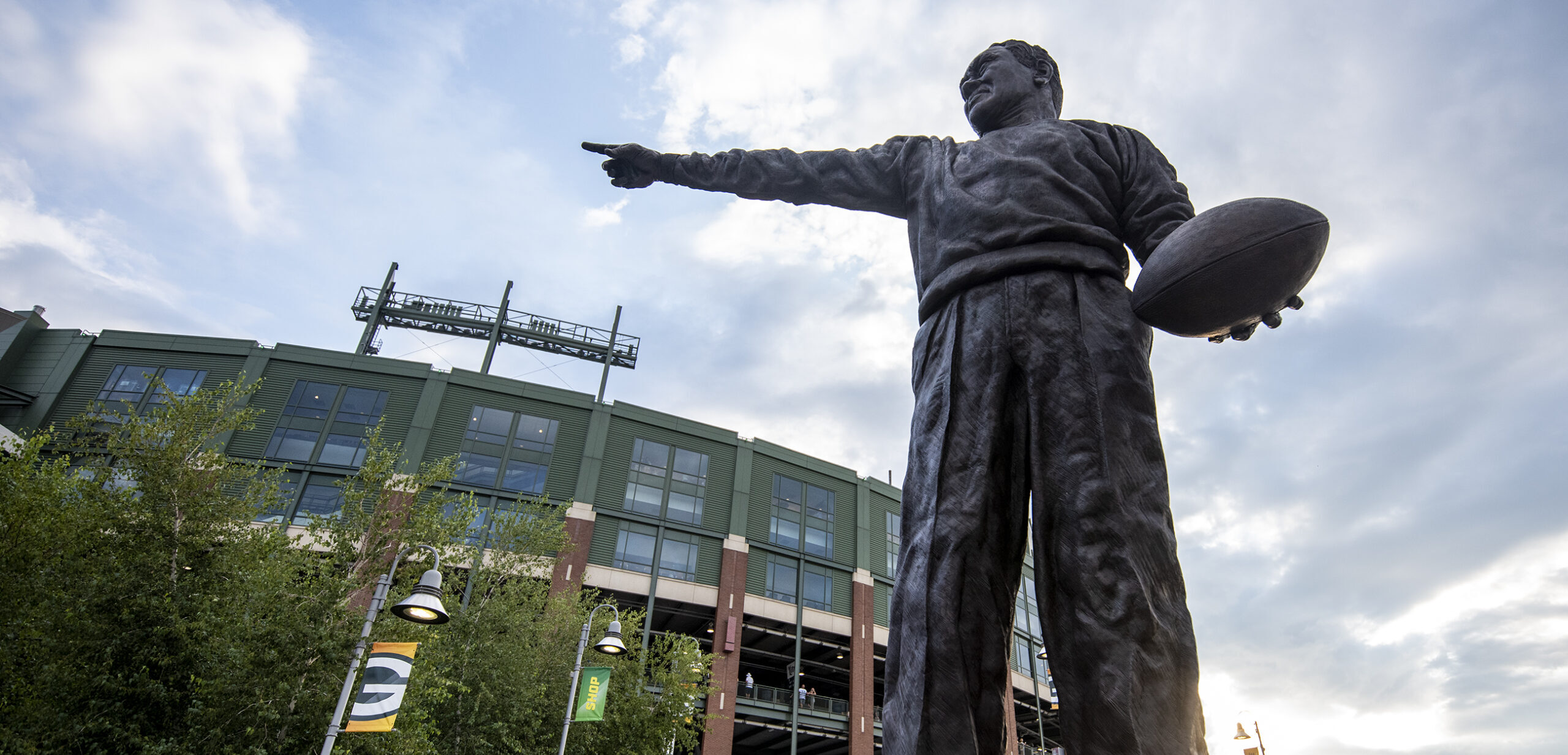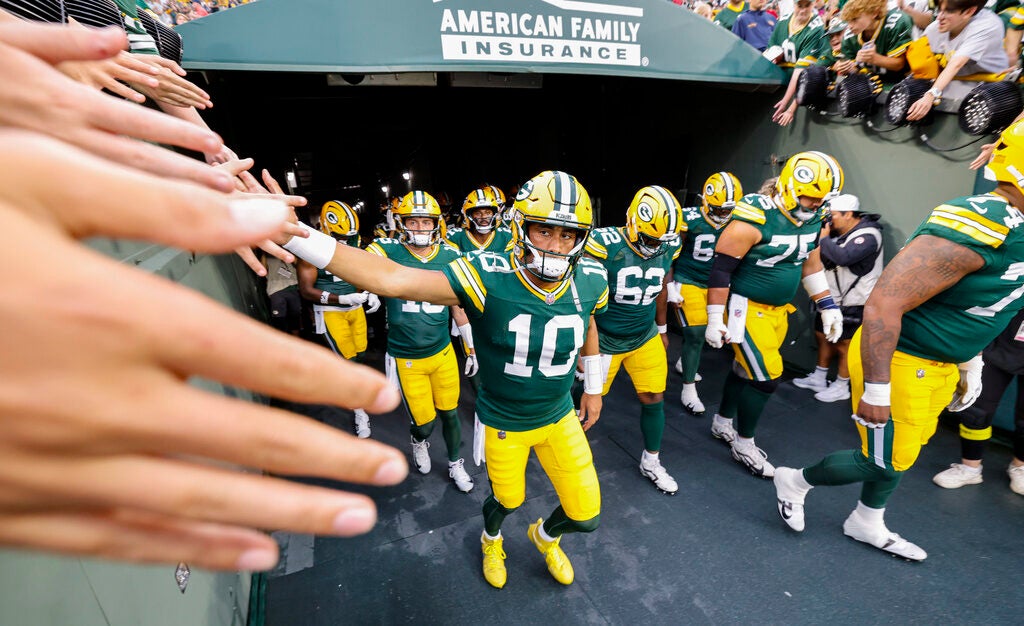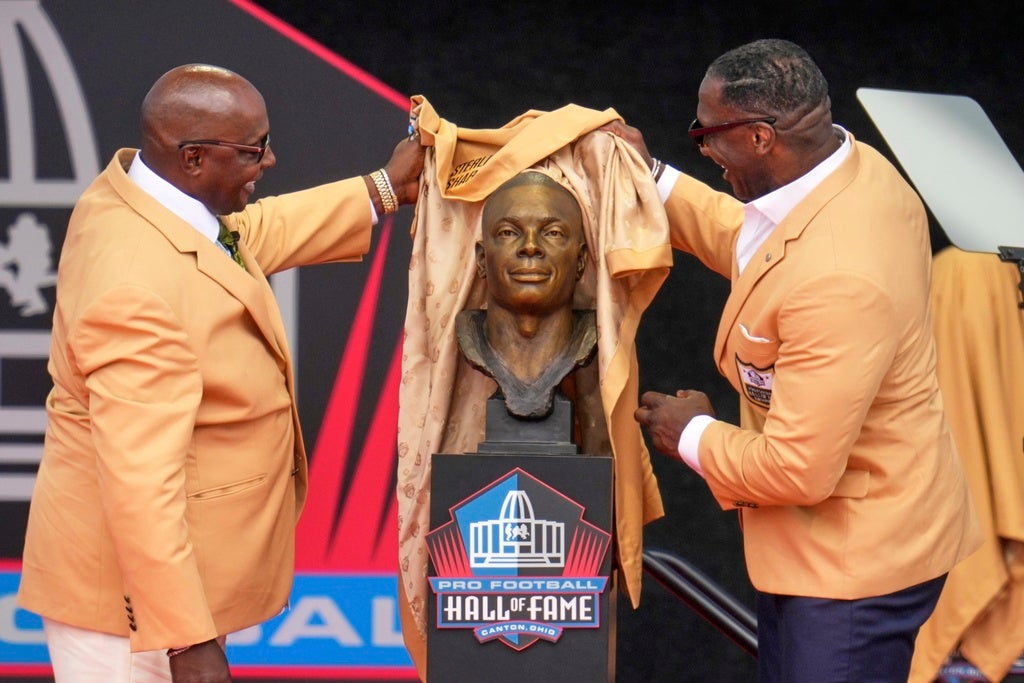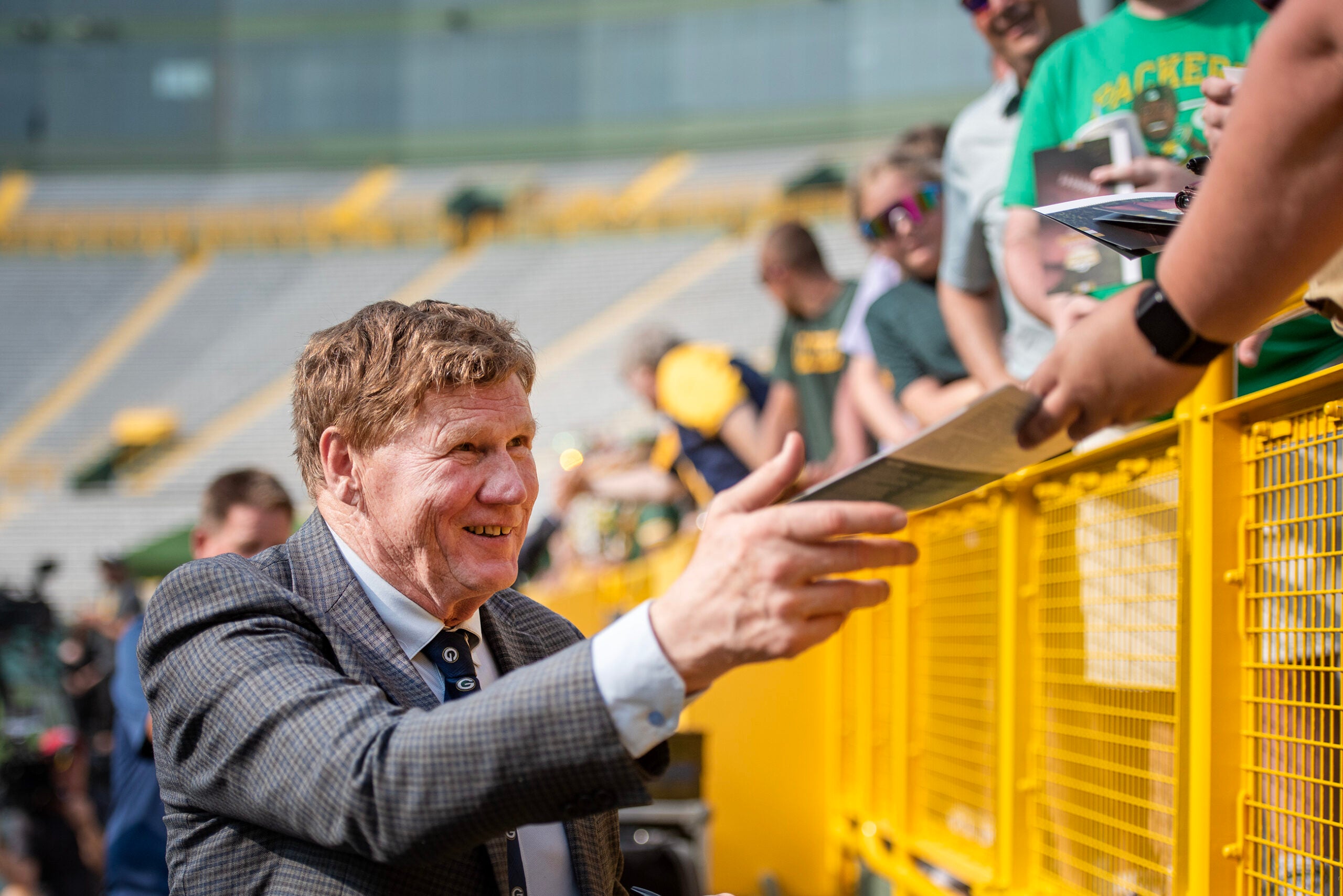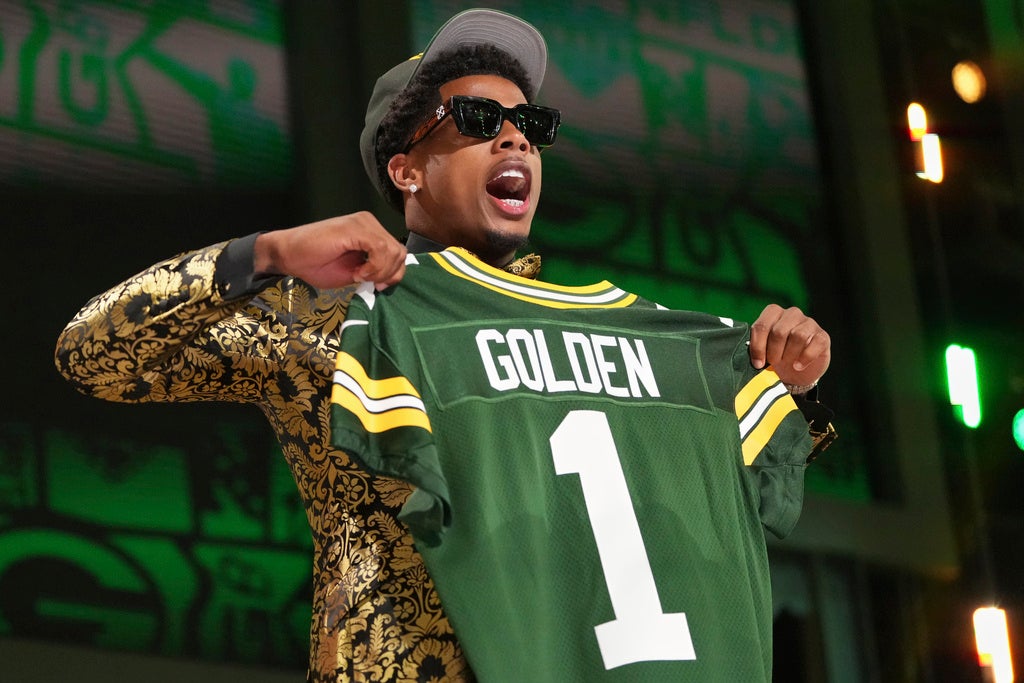The Green Bay Packers are teaming up with the University of Wisconsin-Green Bay to help fans learn more about the organization’s history.
This month, the university is kicking off an eight-session online course on Packers history. Although participants will not receive college credit, the class allows fans to learn about the origins of American football, how a professional team launched in northeast Wisconsin, how the rivalry with the Chicago Bears began and more.
Registration costs $139, and includes admission to the Packers Hall of Fame. Upon completion of the class, participants will receive a digital badge celebrating the accomplishment and status as a “superfan.”
News with a little more humanity
WPR’s “Wisconsin Today” newsletter keeps you connected to the state you love without feeling overwhelmed. No paywall. No agenda. No corporate filter.
“It’s more for bragging rights more than anything,” said Jess Lambrecht, executive officer of UW-Green Bay’s Division of Continuing Education and Community Engagement. “You can say you’re an official, trained Packers’ history aficionado of sorts. It’s a way to just recognize the effort that they’ve put into their learning.”
The sessions will be taught by Brent Hensel, curator of the Packers Hall of Fame, who recently discussed the course on Wisconsin Public Radio’s The Morning Show.
“This is an opportunity to reach people from not just Wisconsin, but all over the country and, perhaps, even all over the world,” he said.
Since the course’s announcement in July, it has been one of the fastest-selling certificate programs the university has offered in many years, Lambrecht said.
“About 60 percent of the enrollments are coming out of the state of Wisconsin,” she said. “That means we can definitely reach an audience and engage with them in a new way.”
In fact, preliminary enrollment numbers for the fall course were so good that the university is already working with the Packers to design a similar program that will run in January, she said.
“This is an example of something that the community has responded very well to, and wants to learn more about,” Lambrecht said. “This is something that we do hope (has) long term viability. As long as there’s interest, we will continue to make modifications (and) tweak it.”
Beyond discussing the opportunity to reach fans from across the globe, Hensel also offered a preview of some of the content the course will cover.
He said American football gained popularity on college campuses, where students would play it on the lawn. It took influence from soccer and rugby, and early football players often didn’t wear any protective gear.
“When American football first started out, if you wore any kind of padding, you were considered — not a technical term — kind of like a wimp or a sissy,” Hensel said.
The Packers Hall of Fame curator also described the team’s early years as “a constant struggle to survive.”
While fans now refer to Lambeau Field as the NFL’s “Frozen Tundra,” as the stadium is packed with spectators during rain, sleet or snow, Wisconsin weather sometimes hurt the team financially in the early days, Hensel said.
“A lot of times, if the weather was terrible, then they wouldn’t bring very many fans in at the gate, and then they wouldn’t actually be able to pay the bills, so they’d get themselves in financial debt,” he said.
In 1923, four years after the team’s founding, local business leaders met and decided to hold the Packers’ first stock sale, offering stock for $5 per share to raise enough money to bring the fledgling football team out of debt, Hensel said.
“This is where the Packers actually became publicly owned, and owned by the fans,” he said.
Lambrecht said those taking the online course will get to learn more about those stories, and others related to the team’s history and role in the community.
“Folks can learn beyond a textbook, a movie or film, and really be able to (have a) dialogue with others who are intrigued, interested and support the Green Bay Packers organization,” she said.
Wisconsin Public Radio, © Copyright 2025, Board of Regents of the University of Wisconsin System and Wisconsin Educational Communications Board.

